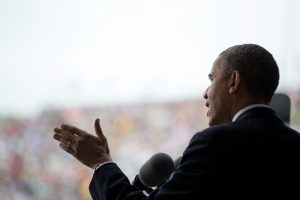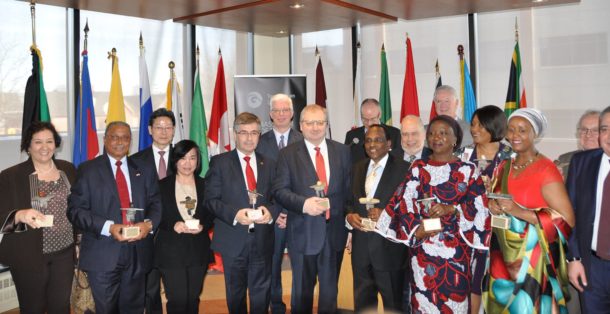Asia Pacific Foundation of Canada
Excerpt (no. 8 on the list)
8. China’s Re-education Camps Test International Tolerance
Image from article: A protester takes part in a march of ethnic Uyghurs around the European Union in Brussels in April 2018.
The demonstraters [JB – sic] were asking the European Union to call upon China to respect human rights in the Chinese Xinjiang region and to close 're-education centres' where Uyghurs are detained. | Image: Emmanuel Dunand/AFP/Getty
The recent development of “re-education camps” in China’s outlying Xinjiang region to detain large numbers of Uyghurs and other Muslim minorities has provoked international condemnation and exacerbated ethnic tensions in the autonomous mountain region.
These camps are part of China’s “strike hard against violent terrorism” campaign, which is bristling with mass surveillance infrastructure and digital policing technologies mounted to contain the religious beliefs and behaviours of ethnic minorities. Despite accusations of arbitrary detention and mistreatment of Uyghurs, the Chinese Government claims that the camps provide training in Mandarin and vocational skills to Uyghur separatists and religious extremists. Mounting international pressure has done little beyond pushing Beijing to change its public diplomacy [JB emphasis] strategy from complete denial to actively publicizing the camps as “free vocational training.”
So far, the governments of other countries have been slow to challenge China on its repressive crackdown in Xinjiang, and China does not seem willing to loosen its grip on Xinjiang. How the dynamics of international reaction and China’s response unfold will be worth watching as the interplay will send a message about China’s future minority policies as well as its intended role in the evolving international order.
As China attempts to play a stronger role in global governance, its human rights policies have come under increasing international scrutiny and condemnation. And yet leaders of Western economies, including those from Canada, are left pondering whether the economic costs of confronting China on human rights issues are too high. In this sense, Xinjiang may well become the new testing ground of tolerance, and the litmus test for China’s incorporation into – or at least collaborative co-existence with – the liberal world order. …








